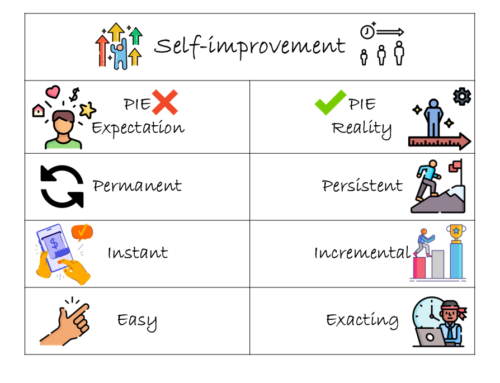Suppose we want to develop a good habit centered on doing something creative or constructive such as meditate, study wisdom-texts, journal or write. Even when we know that such a thing is good for us, we often don’t feel inspired to do it. And when we aren’t inspired, we can’t do it well. That’s why we may defer that thing till we feel inspired, hoping that we can then do it splendidly.
However, waiting for inspiration produces one definite result: indefinite delay. Our inspiration often depends on our mind’s moods, which keep changing wildly, abruptly, irrationally. The mind is fecklessly fickle (Bhagavad-gita 06.34). That’s why if we wait for inspiration, we can’t know for how long we will be kept waiting. Suppose we are fortunate and inspiration comes soon and we do that thing well. Still, after that sporadic good performance, we will confront another agonizing and paralyzing wait for inspiration.
Is there a better way to develop a good habit? Yes, definitely. We need to first understand how our mind works. Everything we do creates a mental impression and that impression gives rise to propositions to repeat that action. So, if we do an action repeatedly, those repetitions will reinforce the corresponding inner impressions. Those impressions, in turn, will lead to stronger propositions for repeating that action, thereby making future iterations of that action easier. Pertinently, the Gita declares that things which taste like poison initially will taste like nectar eventually (18.37).
If we continue working at a good habit even when uninspired, those slow laborious steps taken regularly will shape our mind much more than long leaps taken sporadically. That mental reshaping will make us more receptive to inspiration. Thus, we will become inspired more regularly, thereby not only doing more, but also doing it more joyfully.
Think it over:
- What happens when we wait for inspiration? Why?
- How does working when uninspired help?
- Is there any good habit you want to develop? Instead of waiting for inspiration, how can you start working on it right away?
***
18.37 That which in the beginning may be just like poison but at the end is just like nectar and which awakens one to self-realization is said to be happiness in the mode of goodness.
To know more about this verse, please click on the image
Explanation of article:
Podcast:



Leave A Comment